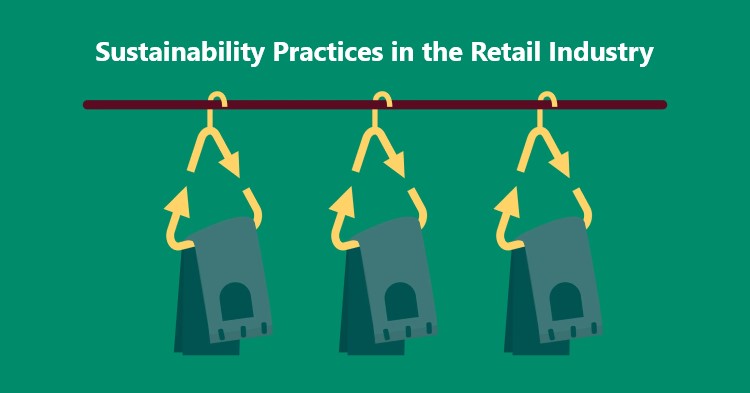
The Importance of Sustainable Sourcing in Retail
Sustainable sourcing is a key aspect of sustainability practices in the retail industry. By adopting these practices, you can reduce environmental impact and promote ethical production. This approach involves selecting suppliers who prioritize environmental responsibility and fair labor practices. By doing so, you support transparency and sustainability throughout the supply chain.
One way retailers can implement sustainable sourcing is by working with suppliers who use eco-friendly materials. This includes sourcing products made from renewable, recycled, or biodegradable materials. Additionally, partnering with suppliers that minimize water and energy usage in their production processes helps reduce the overall carbon footprint. These efforts not only benefit the environment but also resonate with eco-conscious consumers.
Promoting ethical labor practices is another vital component of sustainable sourcing. Retailers should ensure their suppliers offer fair wages and safe working conditions. This commitment to ethical production improves your brand’s reputation and builds customer trust. As sustainability practices in the retail industry become increasingly important, adopting sustainable sourcing practices helps your business stand out while contributing to a more responsible global marketplace.
Energy Efficiency and Waste Reduction in Retail Operations
Improving energy efficiency and reducing waste are essential parts of sustainability practices in the retail industry. Retailers can take several steps to minimize their carbon footprint while also cutting costs. One approach is to upgrade lighting systems by switching to energy-efficient LED lights. These use less electricity and have a longer lifespan, which reduces both energy consumption and replacement costs.
Additionally, optimizing heating, ventilation, and air conditioning (HVAC) systems can lead to significant energy savings. By implementing smart thermostats and regularly maintaining equipment, you can better control energy usage. Retailers can also explore renewable energy sources, such as installing solar panels, to further reduce reliance on non-renewable energy.
Waste reduction strategies are equally important. Retailers can adopt practices such as recycling programs and reducing packaging materials. Using biodegradable or recyclable packaging helps lower the amount of waste generated. Encouraging customers to bring reusable bags and containers is another simple but effective way to minimize waste. These sustainability practices in the retail industry not only benefit the environment but also appeal to consumers who value eco-friendly initiatives.
The Role of Eco-Friendly Packaging in Retail
Eco-friendly packaging has become a key component of sustainability practices in the retail industry. As consumer demand for environmentally-conscious products grows, retailers are shifting to sustainable packaging options. These include using recyclable, biodegradable, or reusable materials that reduce environmental impact. This move not only helps the environment but also resonates with eco-conscious customers who prioritize sustainability in their purchasing decisions.
For businesses, adopting sustainable packaging offers several benefits. It enhances your brand’s image by demonstrating a commitment to reducing waste and promoting responsible practices. Moreover, sustainable packaging can lead to cost savings in the long run, especially if it involves reduced material use or more efficient designs. Many customers are willing to pay a premium for products that align with their values, making eco-friendly packaging a competitive advantage.
By incorporating sustainable packaging into your business, you also contribute to reducing plastic waste and overall pollution. This effort fits into the larger scope of sustainability practices in the retail industry, where minimizing environmental impact is increasingly important. As consumer preferences continue to evolve, using eco-friendly packaging positions your brand as forward-thinking and responsible, helping you build long-term customer loyalty.
How Circular Economy Models Are Transforming Retail
Circular economy models are transforming retail by promoting sustainability through practices like product recycling and resale. In this approach, retailers aim to minimize waste by keeping products in use for longer. One way to do this is by encouraging customers to return used products for recycling or refurbishment. These practices help reduce the environmental impact of retail operations and contribute to a more sustainable economy.
Product resale is another circular economy practice gaining traction in the retail sector. Retailers are now offering platforms for customers to resell or trade in gently used items. This not only extends the lifecycle of products but also provides an eco-friendly option for consumers looking to reduce waste. By integrating resale models, retailers can attract environmentally-conscious buyers who prioritize sustainability.
Sustainability practices in the retail industry are increasingly focused on circular economy initiatives. These models create value for both businesses and consumers by reducing resource consumption and promoting reuse. As more retailers adopt these practices, they contribute to a shift toward more responsible production and consumption patterns, which benefit the environment and society.
Consumer Demand for Sustainable Products and How Retailers Can Respond
Consumer demand for sustainable products has grown significantly in recent years. As more people become eco-conscious, they are choosing brands that align with their values. This shift is driving retail trends, with sustainability becoming a priority for both consumers and businesses. Retailers now have to respond by offering sustainable product lines to meet these demands and stay competitive.
One way retailers can adapt is by sourcing eco-friendly materials and promoting products made with minimal environmental impact. Items like organic clothing, reusable goods, and biodegradable packaging appeal to eco-conscious consumers. Additionally, transparency in production practices is essential. Consumers want to know how products are made and whether the brands they support follow ethical standards.
Sustainability practices in the retail industry must evolve to address this growing demand. Retailers that adopt sustainable practices and offer green alternatives build stronger relationships with environmentally-conscious customers. This approach not only enhances brand loyalty but also positions the business for long-term growth. By embracing sustainability, you create a positive impact while meeting the needs of today’s eco-minded consumers.
Technology’s Role in Driving Sustainability in Retail
Technology plays a critical role in advancing sustainability practices in the retail industry. Innovations like AI, data analytics, and blockchain enable retailers to track and improve their sustainability efforts more effectively. AI helps optimize supply chains, reducing waste by predicting demand and managing inventory efficiently. This minimizes excess stock and lowers the environmental impact of overproduction.
Data analytics allow retailers to monitor their sustainability metrics in real time. By analyzing energy consumption, waste levels, and carbon footprints, you can make informed decisions to reduce your environmental impact. Additionally, data insights help you identify areas for improvement, such as energy efficiency in stores or reducing packaging waste.
Blockchain technology enhances transparency in supply chains. It enables retailers to verify the sustainability credentials of suppliers and track products from source to shelf. This increased transparency builds consumer trust and supports responsible sourcing practices. With technology driving innovations in sustainability practices in the retail industry, businesses can operate more efficiently while meeting the growing demand for eco-friendly products.
Conclusion
In conclusion, adopting sustainability practices in the retail industry is essential for both environmental responsibility and business success. As consumer demand for eco-friendly products grows, retailers must adapt by integrating sustainable sourcing, energy efficiency, and waste reduction. Innovations like AI, data analytics, and blockchain further enhance these efforts, allowing you to track and improve your sustainability practices. By embracing these changes, your business can reduce its environmental impact, build customer trust, and stay competitive in a rapidly evolving market. Sustainability is no longer optional but a key to future growth.

